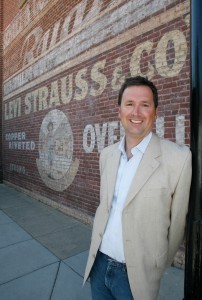An annual pilgrimage begins this week. Thousands of Americans are excitedly unpacking boxes from Cabelas and Orvis and planning to leave the office early. Fox News skipped over for the Weather Channel. The stock market turned off, topo maps unfurled. Politics and the center-right’s distrust of the federal government put aside while a battery of American-made trucks and SUVs head out onto public lands for the start of hunting season.
In the West, the federal government is the single largest non-tax-paying landowner. This includes 53 percent of Oregon, 84 percent of Nevada, 45 percent of California, all owned and managed by the Feds — a landmass larger than much of the eastern seaboard. For decades, local counties with struggling schools, understaffed sheriffs departments and closing libraries have posed the question the federal government either prove they own the land or pay taxes. These sagebrush rebellions flare their heads every few years but rarely go anywhere, because circuit courts are packed by urban lawyers who have no idea what the modern West is really about. But the fact is simple, rural places adjust to federal land policy, whether on fire or not.
 This time of year, those of us in rural America, and those who have romantic visions of joining us, lay down our politics in order to pick up our fly rods, our bows, shotguns and rifles. Elk hunters to pheasant hunters, waterfowlers to steelheaders, we all head out to Uncle Sam’s tree farm. While our Uncle is not going to gift this land to the states any time soon, those hunting and angling, family traditions that are a higher priority than Sunday church in the fall, are as important to conservation as any federal policy.
This time of year, those of us in rural America, and those who have romantic visions of joining us, lay down our politics in order to pick up our fly rods, our bows, shotguns and rifles. Elk hunters to pheasant hunters, waterfowlers to steelheaders, we all head out to Uncle Sam’s tree farm. While our Uncle is not going to gift this land to the states any time soon, those hunting and angling, family traditions that are a higher priority than Sunday church in the fall, are as important to conservation as any federal policy.
Public lands need to stay in public hands. And the folks who live and hunt on public lands are the long-term key to environmental protection. Caretakers in their own right, the hook-and-bullet community is active in protecting and managing herds, raising money to restore fish habitat, and changing the ethic from use-and-abuse to natural restoration. Just yesterday, in a school parking lot in southern Oregon, picking up my 5th-grader, Grandpa Skip Rheault told me: “We waited 37 years to draw that unit (a wildlife lottery system), and that was probably the best hunt the boys and I’ll ever have in our lives.” I didn’t have a chance to ask about his success before he stopped me, smiling broadly, adding, “We didn’t even take an elk. Saw a lot of cows and spikes, but we only wanted a 6-point or better. Just seeing those healthy elk was worth the wait.”
Public lands bring in a lot of local dollars. In Oregon, for instance, The Outdoor Industry Association has found active outdoor recreation generates $12.8 billion annually in consumer spending and supports 141,000 jobs across the state, which generates $4 billion in wages and salaries, which, in turn, produces $955 million annually in state and local tax revenue. And you just thought hunters were skipping work on Friday. Sadly, few of those dollars return to rural Oregon after being rinsed through the colander of state government.
When hunting and fishing comes across oil and gas, emotions start to run high. Adding further tension, the hook and bullet world often polarizes segments of the American populace who didn’t grow up with hunting and fishing as touchstone rites of passage. As a result, Americans turned off by the notion of hunting feel the immediate magnetic pull of other political issues: gun control, animal rights, climate change, for instance. Coupling together disgust for hunting and fishing with popular political issues forces partisan stances on environmental issues, leaving a huge swath of our country’s best stewards out of policy decisions.
In the 1990s, that was not the case as the United States operated, bi-partisanly, on a concept called equal ground. Equal ground ensured treasured lands for habitat and protection are guaranteed the same footing as lands being tapped for oil and gas development. Both Presidents George H.W. Bush and Bill Clinton were successful in placing public land protection on equal ground with oil and gas leasing, while the Obama Administration has leased 6.8 million acres of public lands to oil and gas companies, but only 2.8 million acres have been set aside for hunting, fishing and public use. I certainly hope this is not the trend and not Obama’s legacy in the West.
The blind scales of justice have a hard time with public lands and equal ground. Americans living in rural communities are skeptical of federal ownership, but that sits small in the shadow of their deep love of hunting and the chase. The annual fall pilgrimage to our great outdoors will continue regardless of what is happening in Iran, however, America must realize hunting and fishing, these families like the Rheaults and their generations-old traditions, are part of protecting public lands and wildlife for all of us. You might miss us on Fridays, wonder why our vehicles don a permafrost of dirt, and get lost in the logic of catch and release or hunting without taking a shot, but know one thing: our local communities of local hunters, local steelheaders, local duck shooters are fundamental to conservation.









Leave a Reply